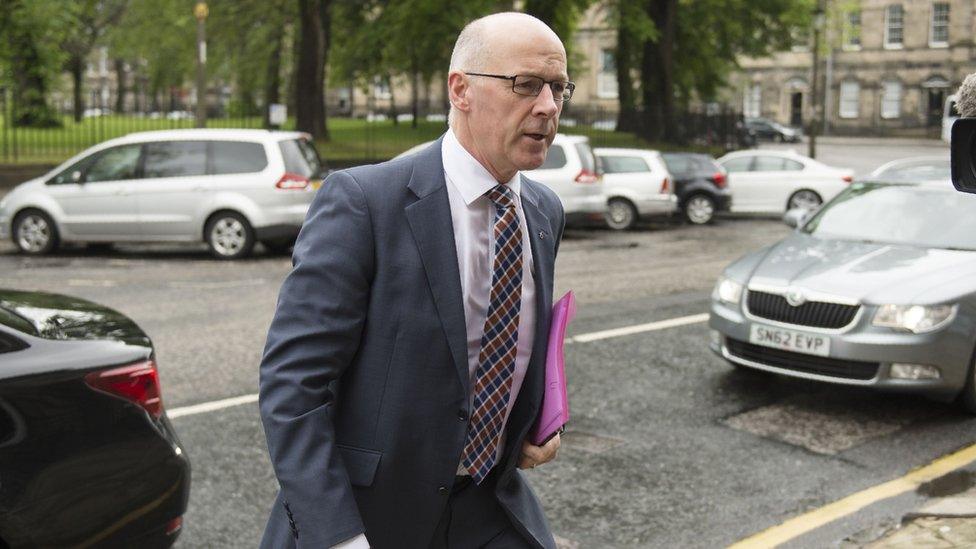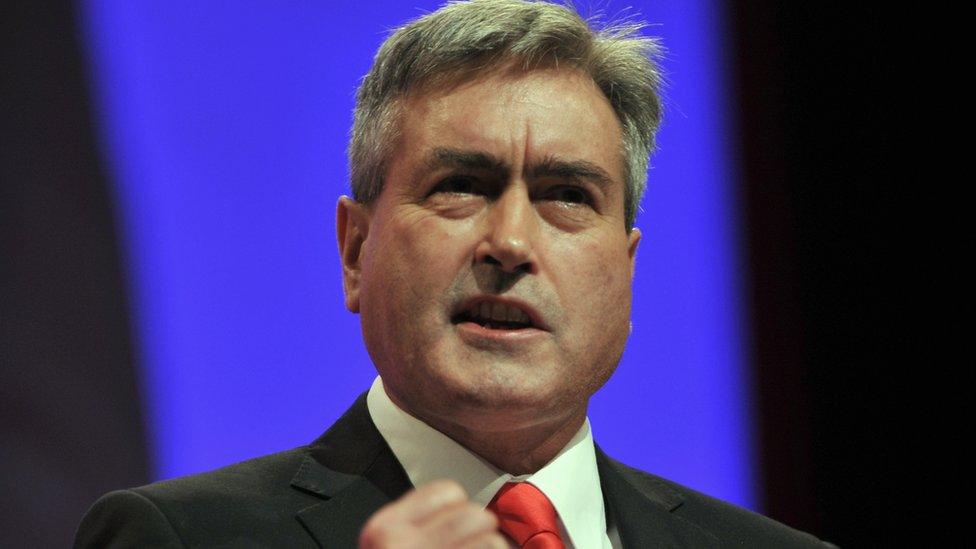Call to cut older teens from named person scheme remit
- Published

Campaigners fear the scheme will cause unnecessary intrusion into family life
The Scottish government has been urged to remove teenagers aged 16 to 18 from the scope of its named person scheme.
The government is to make changes to the legislation after parts of it were ruled unlawful by the Supreme Court.
Labour MSP Iain Gray said including teenagers who are old enough to vote and get married seemed "absurd" to many and had undermined confidence.
Deputy First Minister John Swinney said he was willing to consider the issues raised by Labour.
The government said all under-18s are considered children under the UN Convention on the Rights of the Child.
Mr Swinney has said the policy will be rolled out once information sharing rules are clarified.
The education secretary has opened talks with public sector leaders and charities about amending the scheme, which would appoint a named person, generally a teacher or health visitor, to every child in Scotland.
Opponents called for a complete rethink of the plans after the Supreme Court found that parts of the existing legislation breached the European Convention on Human Rights.
The panel of five judges said the aim of the system was "unquestionably legitimate and benign", but said the data-sharing practices currently legislated for could see confidential information about a child circulated around public authorities without the child or their parents being aware.

John Swinney has held talks with senior figures from councils, police and the NHS following the ruling
The government has moved to halt the roll-out of the system, which has been scheduled for 31 August.
Work will now be done to amend the Children and Young Peoples Act (Scotland), passed in 2014, but Labour's education spokesman Iain Gray said it was not enough to simply focus on information-sharing.
'Enforced pause'
In a letter to Mr Swinney, he said it was not enough to "simply tweak the act to avoid the ECHR breach and pretend that everything else with the law is fine".
He said: "This enforced pause is an opportunity to completely re-examine guidance and training materials, some of which have provoked misleading stories about how named person will operate.
"You should use the opportunity to remove 16-18 year olds from the scheme. The extension of the law to young people already considered adult enough to leave school, work, vote and marry seems disproportionate and, to many, absurd.
"It has simply provided ammunition for those who have sought to misrepresent the whole policy in order to undermine it."

Mr Gray said the "enforced pause" to the policy could provide time to re-examine guidance
The deputy first minister told BBC Scotland: "The United Nations Convention on the rights of the child makes it clear and defines a child as an individual under the age of 18, so that was the rational why Parliament established the scheme on that basis, with of course a number of caveats.
"But this is of course one issue that has been discussed before, as part of the legislative process, and I will of course give consideration to the issues that have been raised by the Labour Party."
Family life
The Scottish Conservatives have also called for wholesale changes, with leader Ruth Davidson saying the government should "go right back to the starting block", having "lost the support of the majority of parents across Scotland".
Responding to Labour's intervention, Tory education spokeswoman Liz Smith said: "Labour have completely lost the plot when it comes to their policy on named persons.
"They said in the Scottish election they wanted a pause, then they voted against a pause in a parliamentary debate and now they seem to want it again.
"In 2013, they supported the Conservative amendment to remove 16-18-year-olds from the named person scheme but they would not support the other amendments which would have removed the difficulties of the policy which they are now complaining about."
Campaigners from the No to Named Persons group which took the case to the Supreme Court, argued that the scheme would cause unnecessary intrusion into family life.
- Published31 July 2016

- Published28 July 2016
